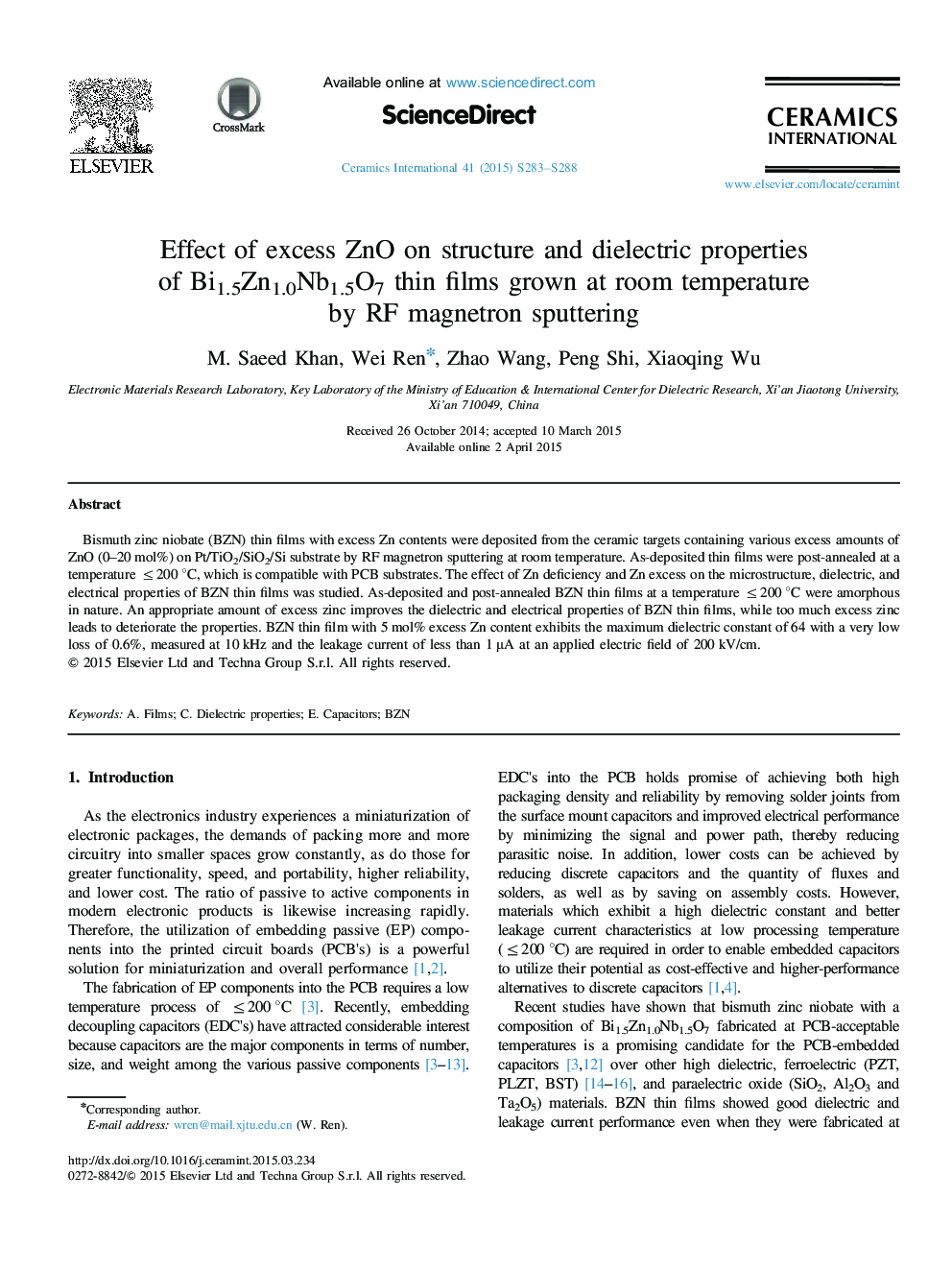| Article ID | Journal | Published Year | Pages | File Type |
|---|---|---|---|---|
| 1460931 | Ceramics International | 2015 | 6 Pages |
Bismuth zinc niobate (BZN) thin films with excess Zn contents were deposited from the ceramic targets containing various excess amounts of ZnO (0–20 mol%) on Pt/TiO2/SiO2/Si substrate by RF magnetron sputtering at room temperature. As-deposited thin films were post-annealed at a temperature ≤200 °C, which is compatible with PCB substrates. The effect of Zn deficiency and Zn excess on the microstructure, dielectric, and electrical properties of BZN thin films was studied. As-deposited and post-annealed BZN thin films at a temperature ≤200 °C were amorphous in nature. An appropriate amount of excess zinc improves the dielectric and electrical properties of BZN thin films, while too much excess zinc leads to deteriorate the properties. BZN thin film with 5 mol% excess Zn content exhibits the maximum dielectric constant of 64 with a very low loss of 0.6%, measured at 10 kHz and the leakage current of less than 1 µA at an applied electric field of 200 kV/cm.
